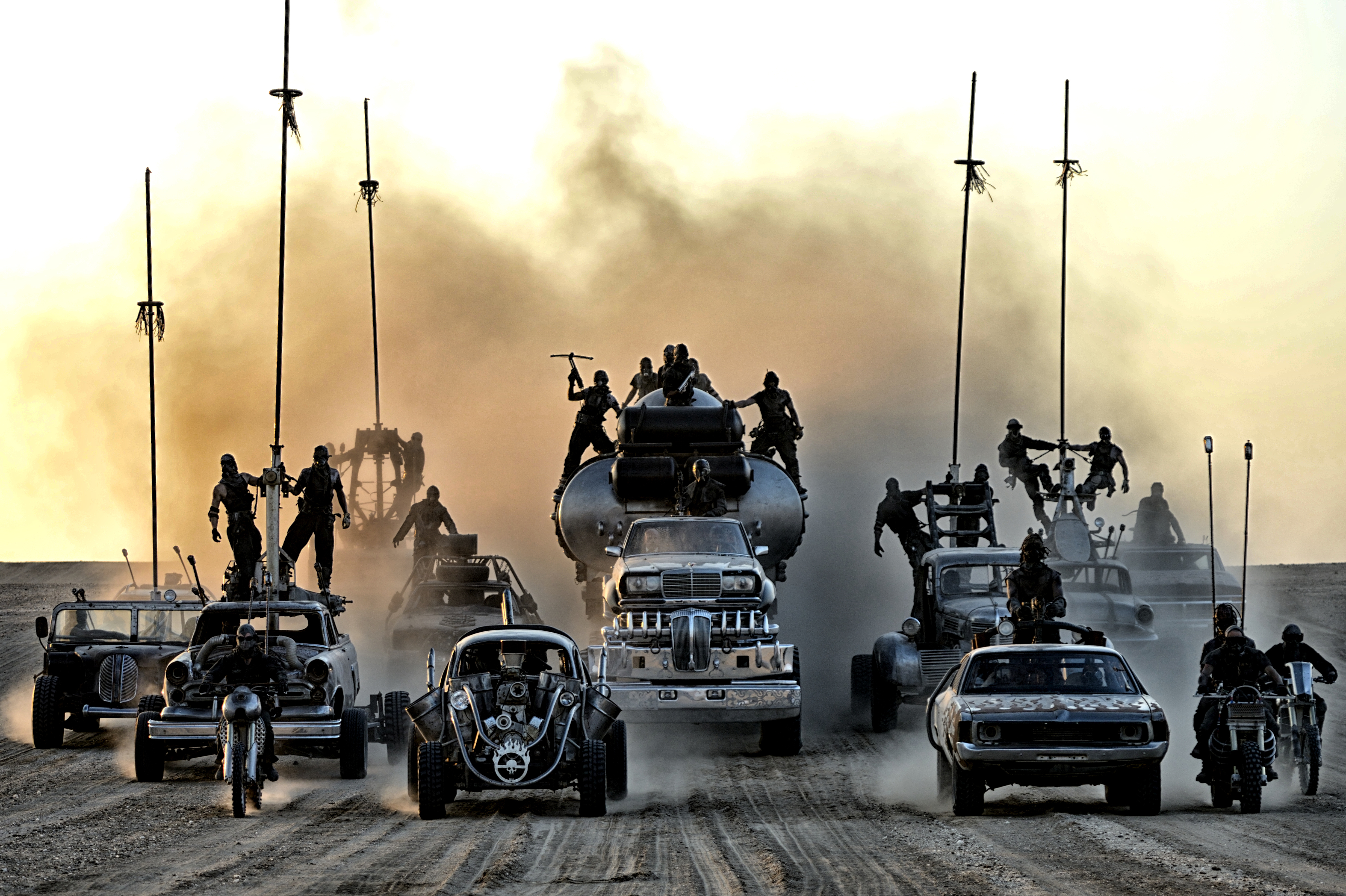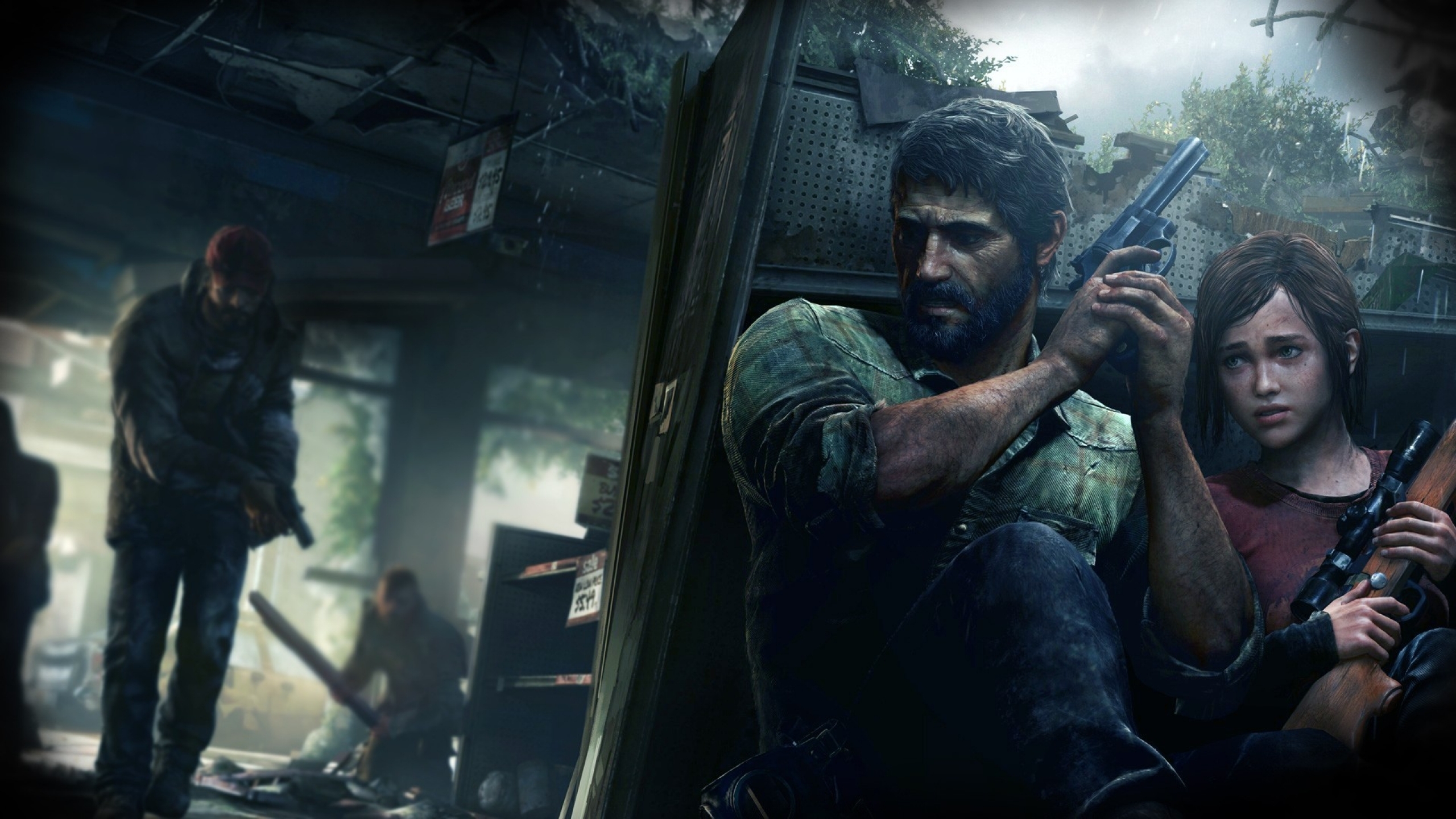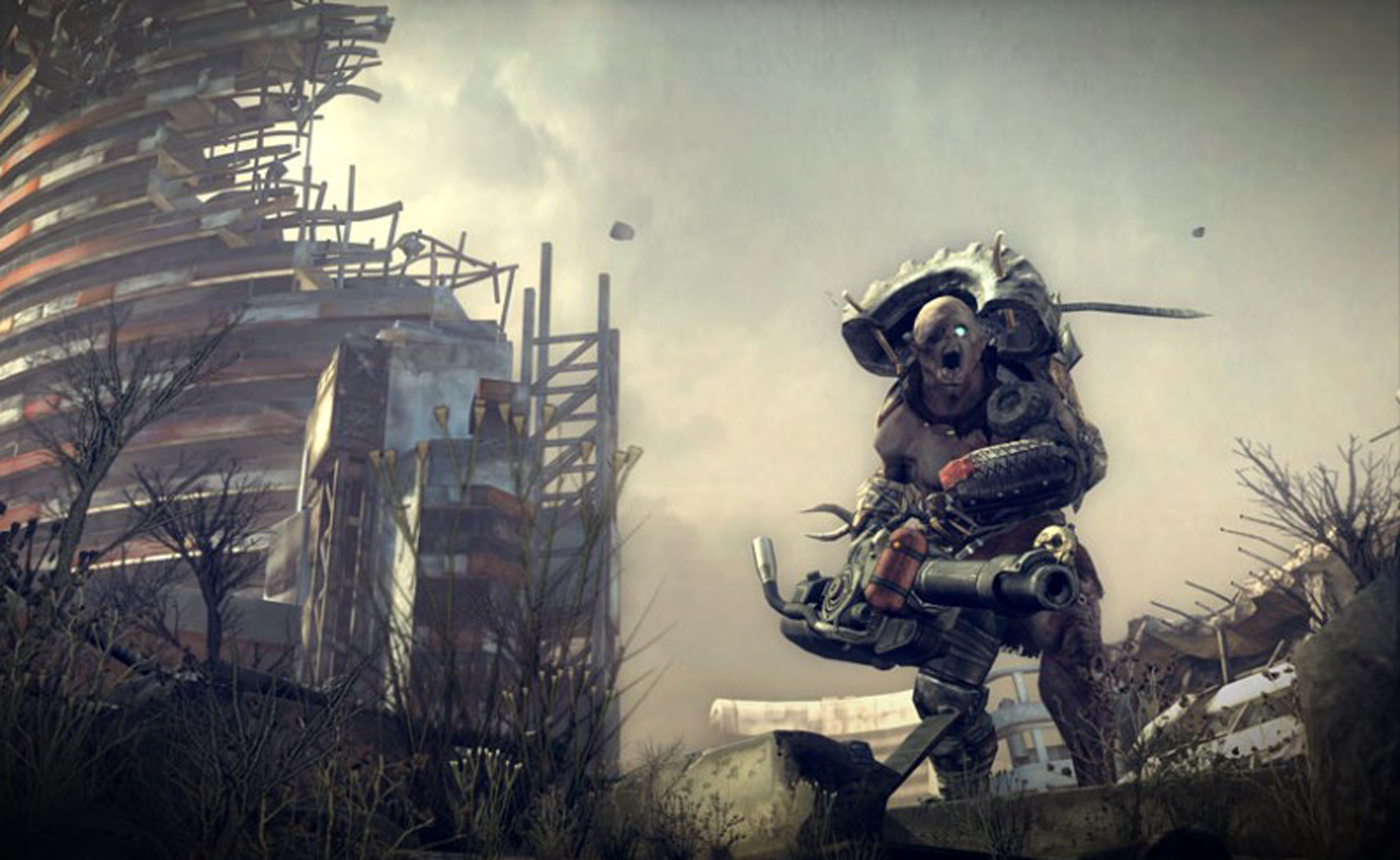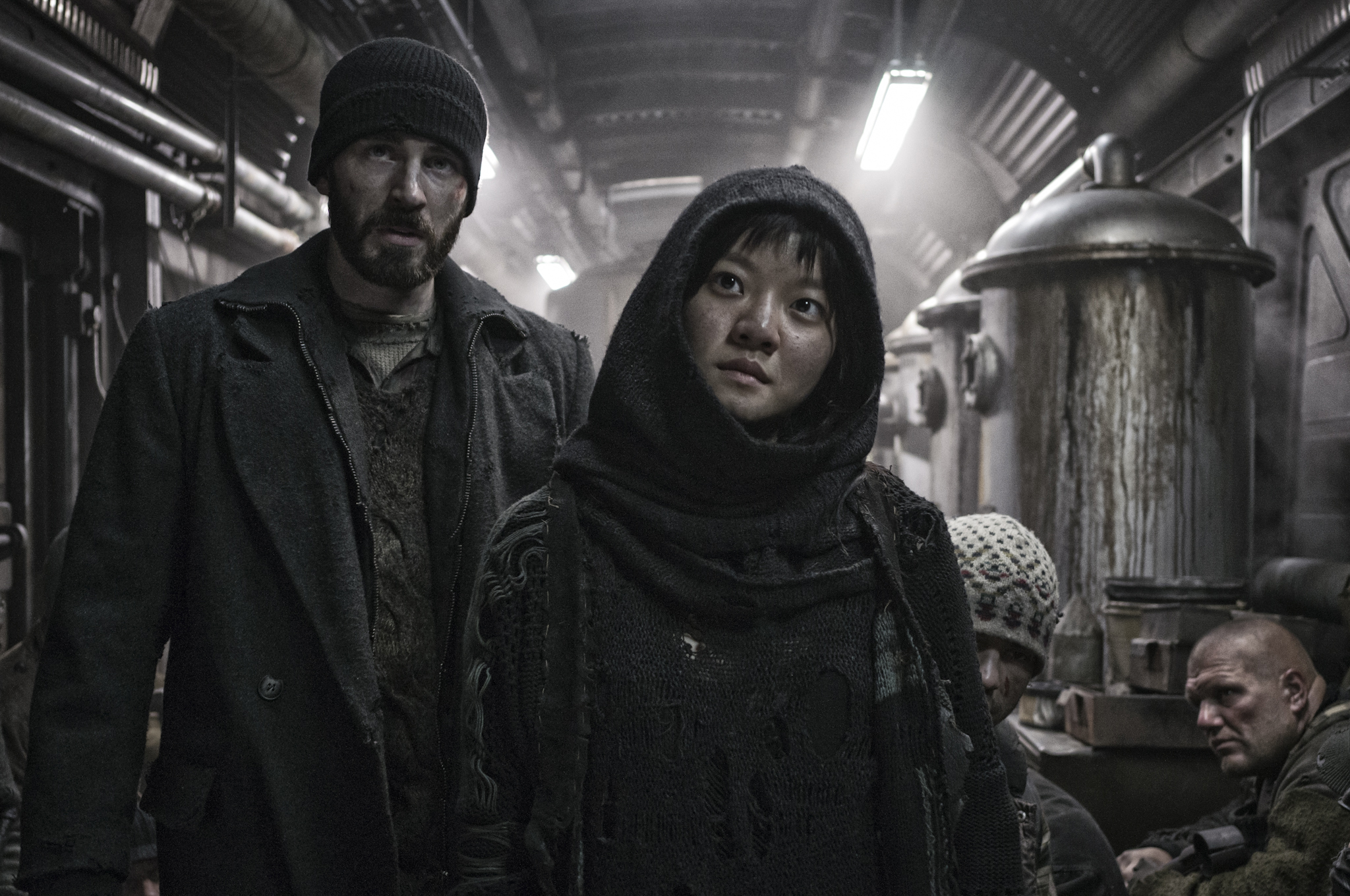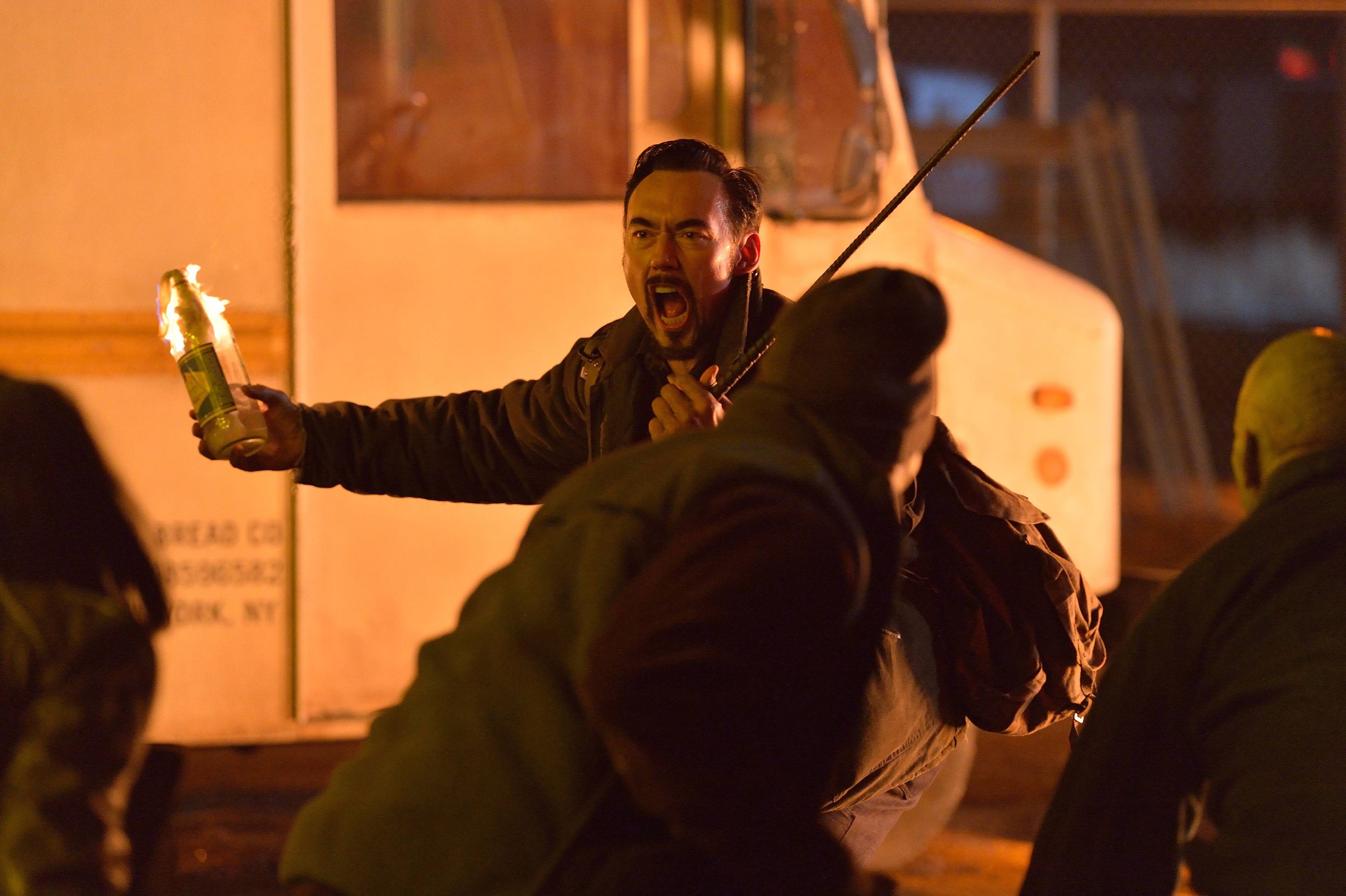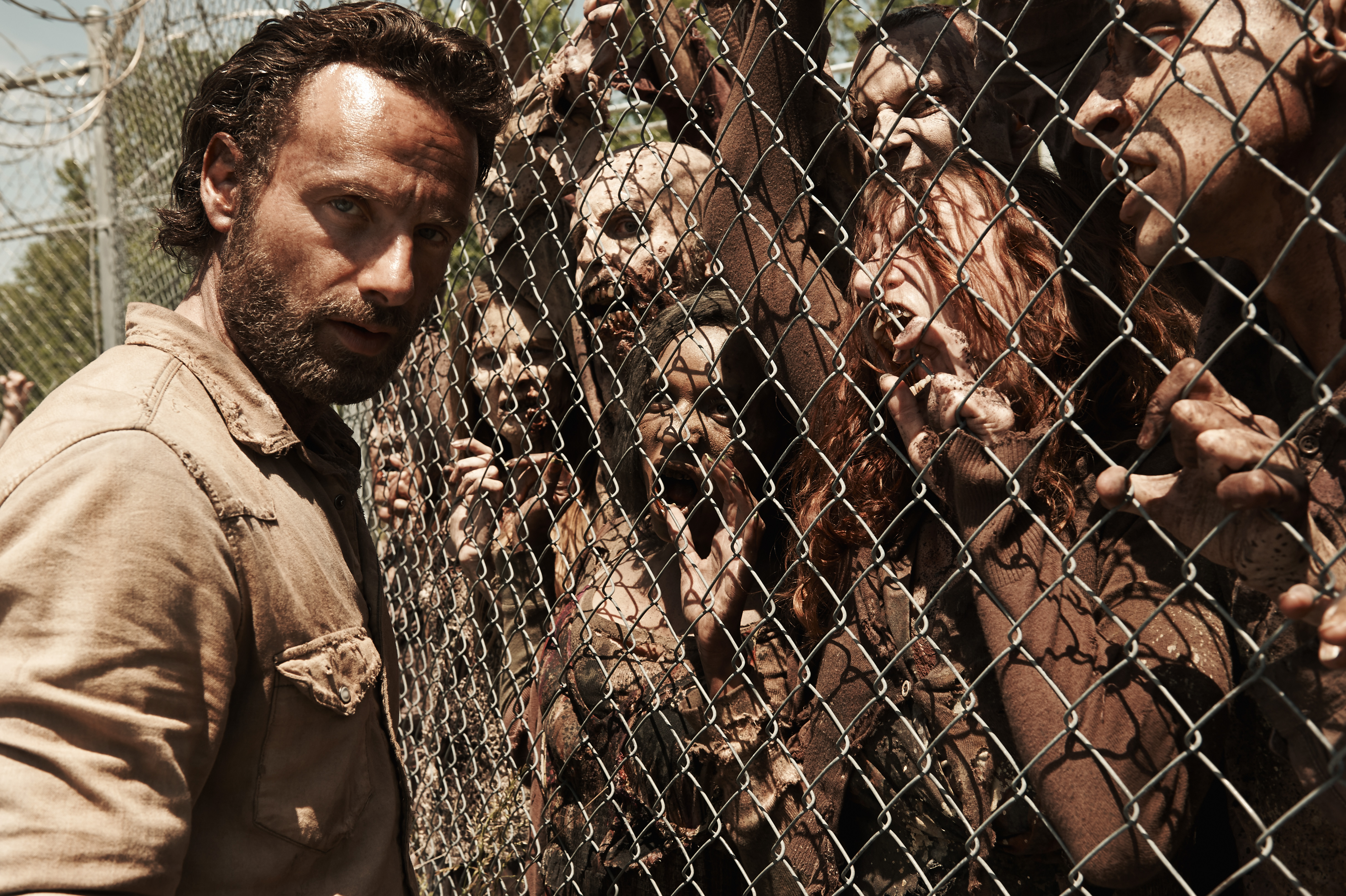A-POP-CALYPTIC CULTUREA tremendous number of films, TV shows, books and video games set during or after a worldwide calamity have been released in the last five years. Here are a few:Films* "Snowpiercer" (2014)* "Interstellar" (2014)* "The Colony" (2013)* "Elysium" (2013)* "How I Live Now" (2013)* "World War Z" (2013)* "This is the End" (2013)* "The Hunger Games" series (2012/2013/2014/2o15)* "Cloud Atlas" (2012)* "Seeking a Friend for the End of the World" (2012)* "The Book of Eli" (2010)TV shows* "Dominion" (2014-)* "The Leftovers" (2014-)* "The Strain" (2014-)* "Revolution" (2012-2014)* "Doomsday Preppers" (2012-)* "Falling Skies" (2011-2014)* "The Walking Dead" (2010-)* "Survivors" (2008-2010)Books* "The Decay: A Post Apocalyptic Tale of Survival" (2014)* "After: The Shock" (2014)* "Eden's Promise" (2013)* "It's Better This Way" (2013)* "Blood of Eden" series (2012/2013/2014)* "Wool" (2012)* "Ashfall" series (2011/2012/2014)* "The Passage" series (2010/2012/2014)Video games* "Wasteland 2" (2014)* "Metro Last Light" (2013)* "The Last of Us" (2013)* "Dead Rising 3" (2013)* "Plague, Inc." (2012)* "Ravaged" (2012)* "Lone Survivor" (2012)* "Deadlight" (2012)* "Rage" (2011)* "Darksiders" (2010)* "Fallout: New Vegas" (2010)* "Metro 2033" (2010)* "Enslaved: Odyssey to the West" (2010)
Nobody likes a story with a dull ending.
In recent years, dozens of books, video games, movies and TV shows have depicted spectacularly horrible conclusions to humanity at the hands of zombified hordes, devastating infections, extreme climate change and nuclear war, among other calamities.
Despite millennia-old myths and legends that demonize the end times, people seem delighted by modern-day tales of the apocalypse, says James Berger, a senior lecturer at Yale University.
"There's an impulse of pleasure in the apocalypse. There's a fear of the end of the world, but there's also a desire to see it happen -- not happen to you -- but to see it happen," says Berger, whose 1999 book, "After the End," analyzes fictional depictions of the aftermath of world-ending catastrophes.
Writers, filmmakers and game developers have exhibited devilish creativity when it comes to dreaming up new ways to close the book on mankind. This year alone, audiences have been offered a grab bag of potentially world-ending scenarios.
In June, the film "Snowpiercer" presented a future in which the sudden resurgence of a new ice age -- created by a botched attempt to end global warming -- forces what's left of humanity to retreat permanently onto a massive, globe-circling train.
In July, FX debuted "The Strain," a TV series based on a trilogy of novels written by Guillermo del Toro and Chuck Hogan about the apocalyptic spread of a pandemic that turns humans into vampiric hosts for a virus. Even nuclear devastation and the resulting winter are involved.
When it is released on Sept. 19, the long-awaited sequel to the 1988 roleplaying video game "Wasteland" will offer a cataclysmic two-for-one by dropping players into a virtual wasteland created after a series of meteor strikes sparks a global thermonuclear holocaust.
On Nov. 21, "Mockingjay," the third film based on author Suzanne Collins post-apocalyptic "Hunger Games" trilogy will hit screens. Thus far, the previous two films, "The Hunger Games" (2012) and "Catching Fire" (2013), have earned more than $1.5 billion at the box office, according to BoxOfficeMojo.com.
The myriad of ways pop culture has dreamed up to snuff out humanity is hardly surprising, Berger says. As a species, humans are facing plenty of real-world problems that provide a deep wellspring of catastrophic inspiration, he explains, offering up climate change, the economic recession and political unrest as a handful of examples.
"From what I can glean from just living in America in the early 21st century, I think there's a widespread anxiety about the possibility of a future," he says. "I think many of the apocalyptic and post-apocalyptic portrayals we're seeing are dealing with the very idea of a future, per se."
A CLEAN SLATE
Berger's own interest in studying the apocalypse took root when he saw trailers for the 1996 summer blockbuster "Independence Day," in which devastating extraterrestrial attacks reduce iconic structures such as the White House and Empire State Building to rubble. Although the film ultimately proved disappointing as a piece of cinema, the underlying appeal of the scenes of utter destruction seemed worth pursuing academically, Berger says.
"I began to wonder, 'Why does one feel pleasure in seeing these things?'" he recalls.
One of his conclusions is that there's a pervasive feeling among fans of post-apocalyptic fiction that "the world is irredeemable ... can't be saved and should not be saved."
For those who feel anxious about the state of the world around them, there's a certain cathartic appeal to fictional apocalypses that wipe the slate clean for the survivors -- assuming there are any.
"We know what we are doing is not sustainable, and what we have built is, in many ways, not even desirable," says Sandra Young of Rossville, Ga.
Young says she especially appreciates Stephen King's 1978 post-apocalyptic horror novel "The Stand," which begins with a government's attempt to cover up the inadvertent release of a virus that ultimately wipes out 99 percent of the population. It's a "very realistic scenario," she says.
"I feel people are fascinated by [the post-apocalypse] because most everyone has the occasional wish that 'all this' would just go away and life could be simpler and less stressful," Young adds.
A BAROMETER OF OUR FEARS
Although there has been a recent glut of pop culture properties with post-apocalyptic content, there is a long history of fiction depicting humanity's struggle to survive in the face of a global crisis.
Even before Victorian times, authors and playwrights were fascinated by the concept of world-altering catastrophes. In 1826, just eight years after publishing "Frankenstein, Or The Modern Prometheus," Mary Shelley wrote "The Last Man," a novel that depicts a late-21st-century world that is being ravaged by a devastating plague.
The popularity of post-apocalyptic fiction -- and the depicted causes of the apocalypse -- often reflect society's most deep-seated concerns at the time. In a sense, Berger says, the genre serves as a sounding board for society's most pervasive real-world fears.
The then-recent memories of the devastation wrought by the World War I, for instance, resulted in a wave of novels and films including the novel "The Death Guard" (1939) and the film "Things to Come" (1936) depicting an apocalyptic future resulting from another mammoth military conflict. Director Fritz Lang's dystopian masterpiece" Metropolis" (1927) was produced in a Germany wrecked economically and socially by World War I.
In Japan, during the 1950s and '60s, lingering fears over the side effects of radiation in the wake of the atomic bombs dropped on Hiroshima and Nagasaki lead to the production of a wave of "kaiju" -- or giant monster -- films such as "Godzilla" and "Gamera." The fallout of those nuclear attacks has continued to provide the backdrop for countless post-apocalyptic Japanese graphic novels, animated films and TV shows.
During the U.S./Soviet space race of the 1950s and 1960s, worries about the possibilities of encountering malevolent aliens fueled a similar wave of films with an extraterrestrial bent, including "Invasion of the Body Snatchers" (1956) and "Battle of the Worlds" (1961).
By the 1970s, concerns sparked by the oil embargo of 1973 led many authors and filmmakers to create works that imagined a future in which the world never recovered from losing its access to fossil fuels. One of the prime examples is 1979's "Mad Max," which became one of the most iconic post-apocalyptic franchises. A new entry in the series, "Mad Max: Fury Road," is set for release next May.
'WAR. WAR NEVER CHANGES'
By far, however, the deepest wellspring of post-apocalyptic inspiration is a devastating war, especially one in which the use of nuclear armament radically alters the landscape and erases most vestiges of civilization.
For many video gamers, their most memorable trips into a post-apocalyptic landscape have been through the "Fallout" roleplaying series. Set in the aftermath of a cataclysmic nuclear exchange in the late 21st century, players take on the role of one of a handful of survivors who emerge from underground bunkers into a devastated wasteland. There, they confront irradiated wildlife, mutants and a few hardscrabble humans, many of whom have no qualms about solving problems with violence instead of diplomacy.
Confronting ethical dilemmas and dealing with moral ambiguity are both hallmarks of almost all post-apocalyptic fiction. Fans say those elements are especially well-developed in the "Fallout" series, which lets players make moral decisions without the influence of societal constraints such as a judicial system.
In these games, says Chattanooga State Community College student Kayla Wilfong, being the hero isn't a matter of grand, noble acts. In the post-apocalypse, the bar has been lowered significantly.
"It's easier to be a classic 'hero' ... in the chaotic aftermath of a nuclear war or zombie outbreak," she says. "You can't really be much of a hero in today's society, which is -- for the most part -- relatively peaceful, safe and comfortable."
In many post-apocalyptic stories, the world's population has been reduced to a fraction of its size before the calamity. In that sense, fans say, each and every survivor is inherently more significant, their survival is more crucial to the species and their actions less constrained by outside forces and ultimately more impactful.
"[Post-apocalypses are] about being able to juxtapose our mundane and otherwise inhumane lives into a world where things matter again," says Chattanoogan Vaughn Stegall. "'First world problems' disappear.
"I think that the obsession comes from wishing, however subconsciously, that we could be there, that we could have the choice to become hard, real humans or to 'give up' and become monsters."
THIS TOO COULD COME TO PASS
Many fans of end-of-the-world pop culture say they are fascinated by these works because, unlike genres such as fantasy or science fiction, post-apocalyptic titles often are more deeply rooted in the plausible. And in reading, watching or playing their way through such scenarios, they say they are forced to consider how they would react if placed in a similar situation.
"For me, [post-apocalyptic fiction] gnaws at my desire to be in control of a situation," says Signal Mountain resident Bo Oglesby.
He cites the novels "Alas, Babylon" and "One Second After" as two of his favorites post-apocalyptic works. The former was released in 1959, recounting a small Florida town's struggle to survive in the wake of a nuclear war. "One Second Later" is a 2009 novel that recounts how an electromagnetic pulse affects the residents of Black Mountain, N.C.
A 50-year-old father and husband, Oglesby says he's drawn to post-apocalyptic novels because they make him question how society might react to a similar situation if it were to come to pass in the real world.
"I am interested in depictions of the thin fabric that holds together our civilized society today -- see Ferguson (Mo.) -- and also people's decision-making process in stressful situations," he says. "I often find myself astounded at what people can be capable of when faced with desperate circumstances."
For some, the allure of the post-apocalypse is the abolishment of societal constraints and the resulting no-holds-barred mentality of survival of the fittest, Yale's Berger says.
"That's another interesting thing about the apocalyptic sensibility, the sense of justified violence," he says. "What it does is free people and give them the opportunity to use their guns and kill people."
While doomsday scenarios currently are relegated to words on a page and images on a screen, the likelihood of interest in the post-apocalyptic diminishing any time soon is slim, so long as mankind remains uncertain about its future, Berger says.
"I think people who are really thinking about [the post-apocalypse] will continue to think about it," he says. "We do have these genuine, actual problems that we're not putting our minds towards actually solving."
The end.
Contact Casey Phillips at cphillips@timesfreepress.com or 423-757-6205. Follow him on Twitter at @PhillipsCTFP.

